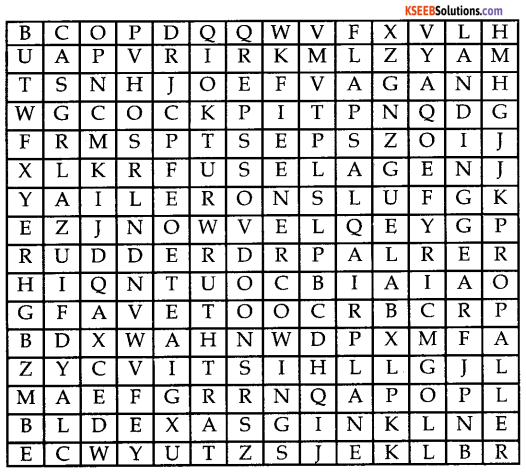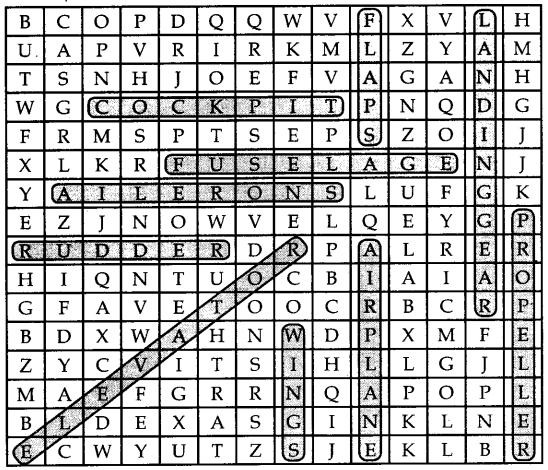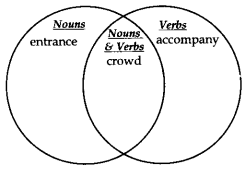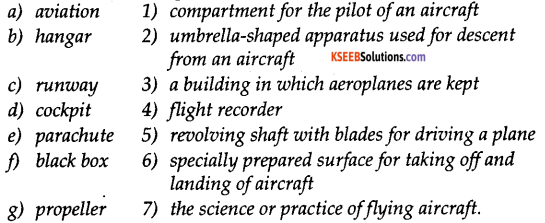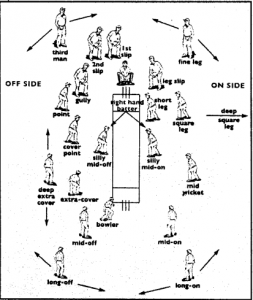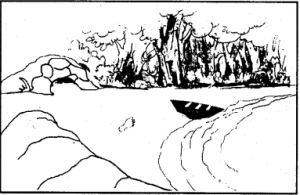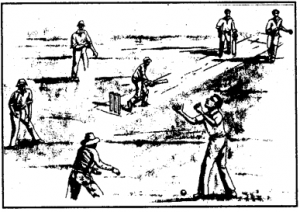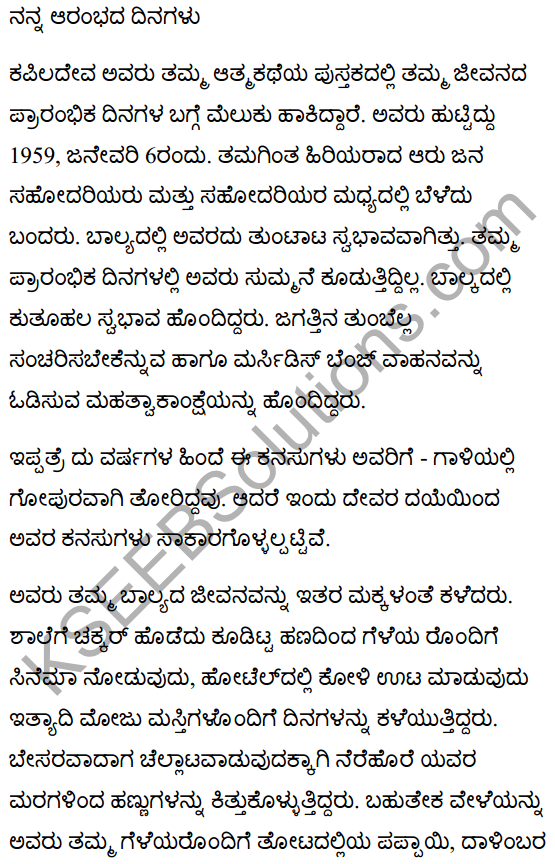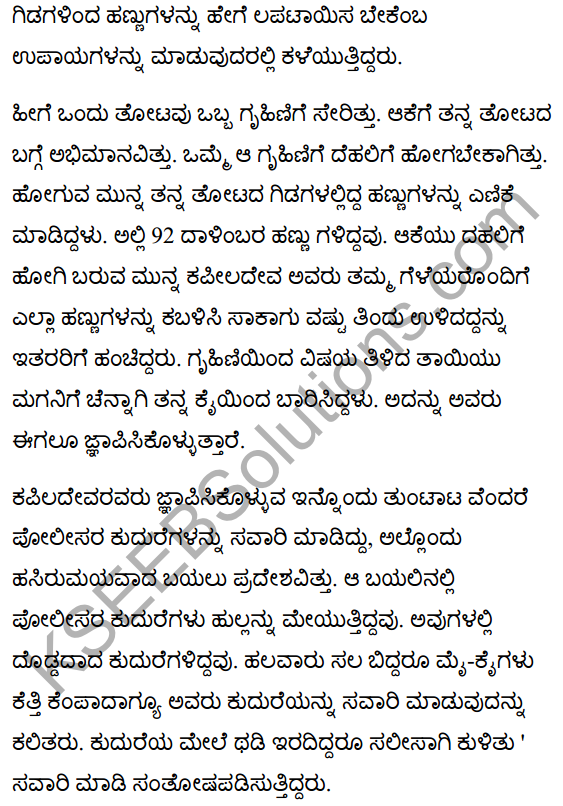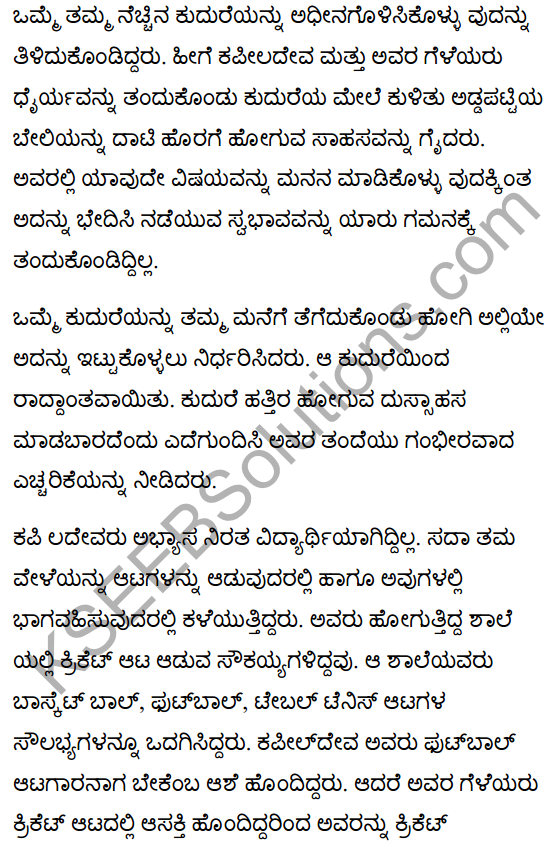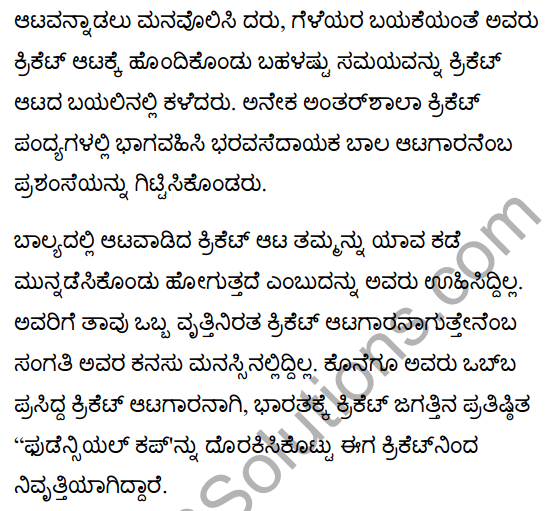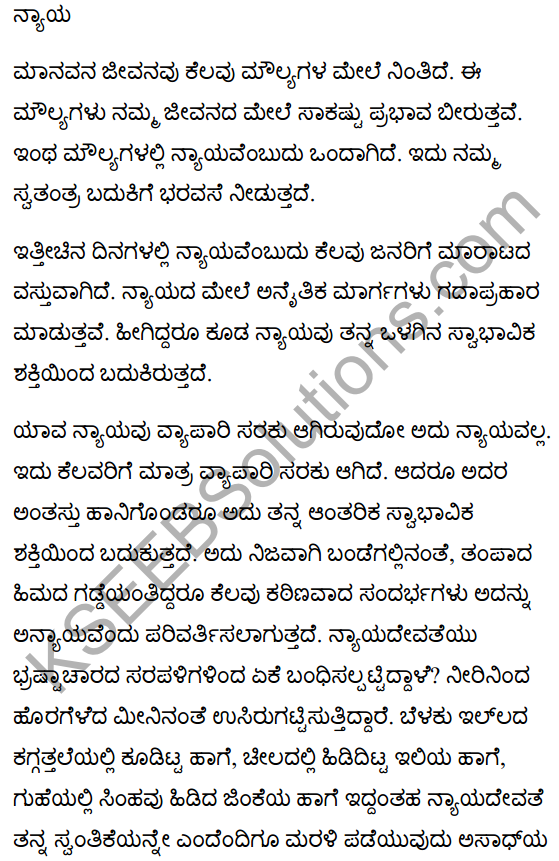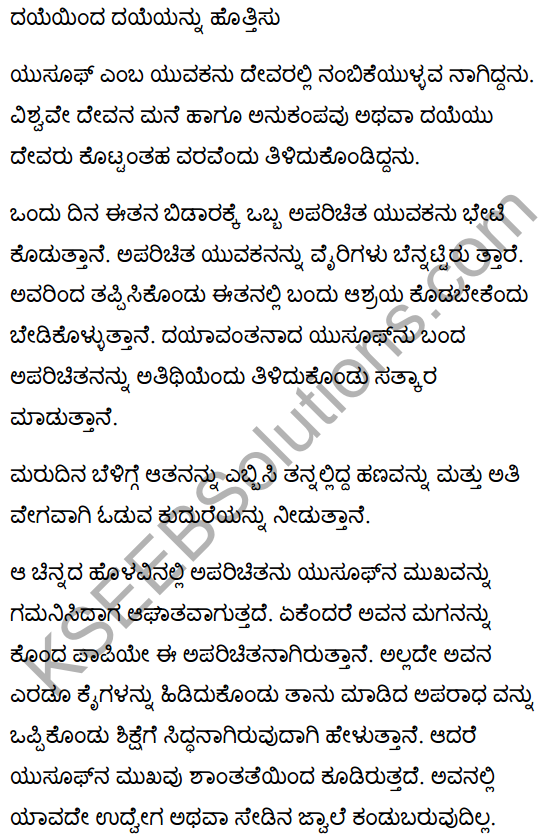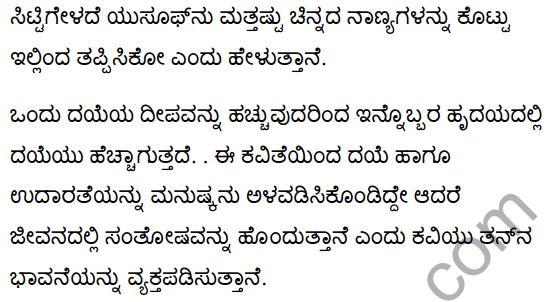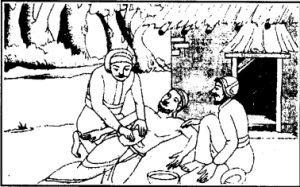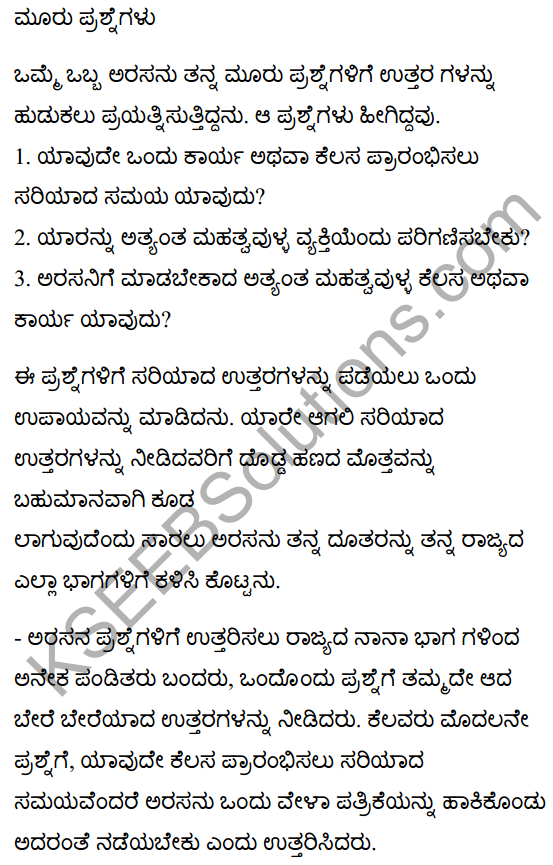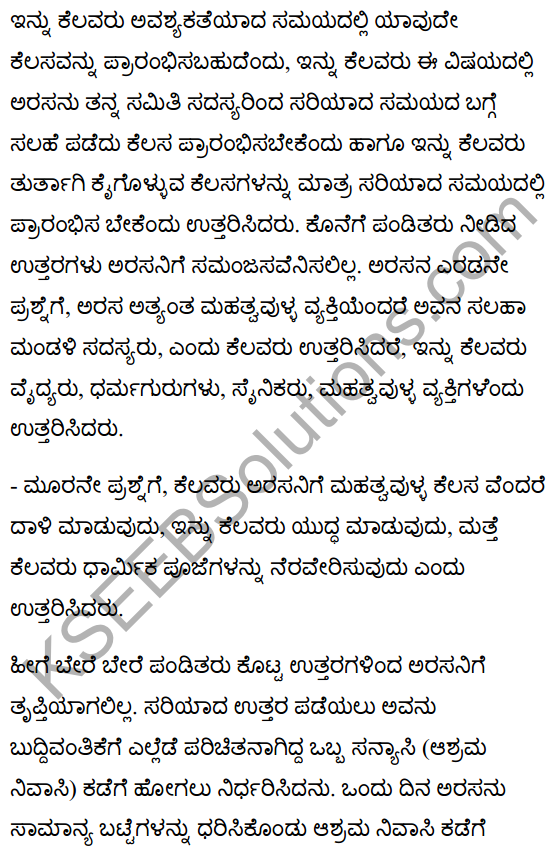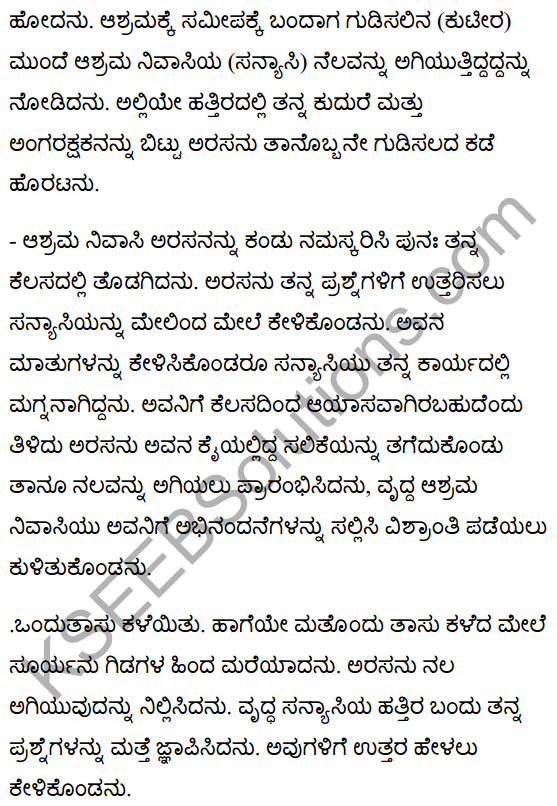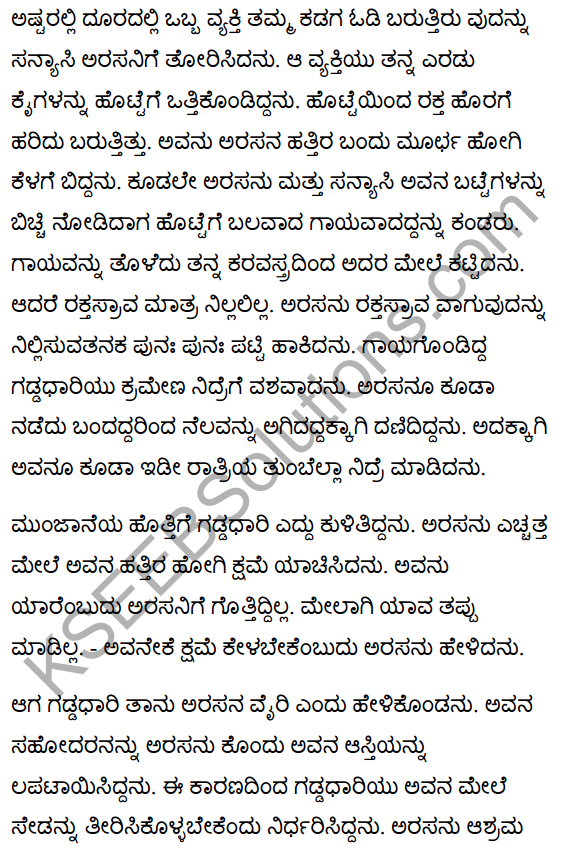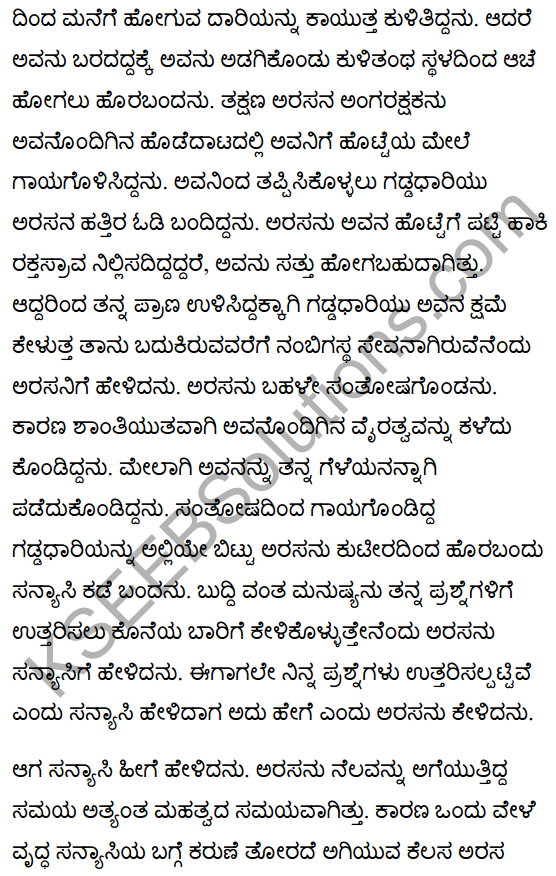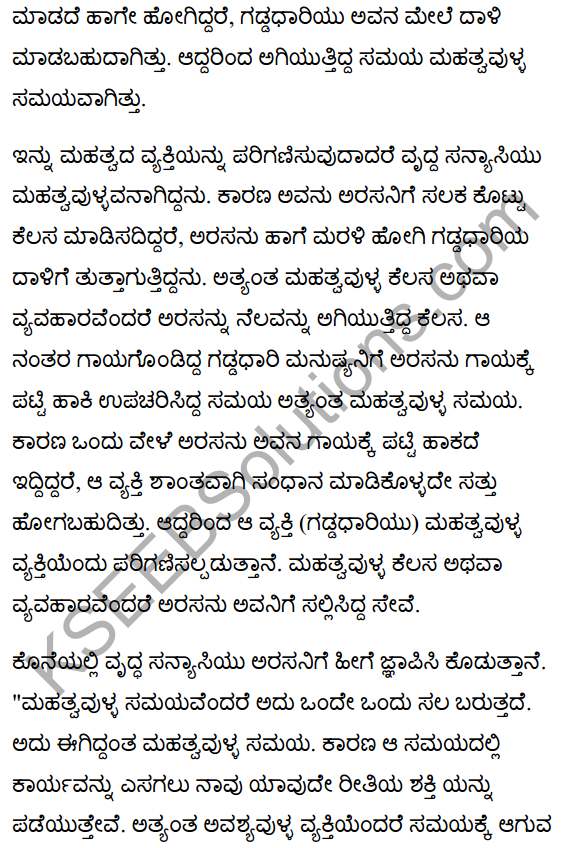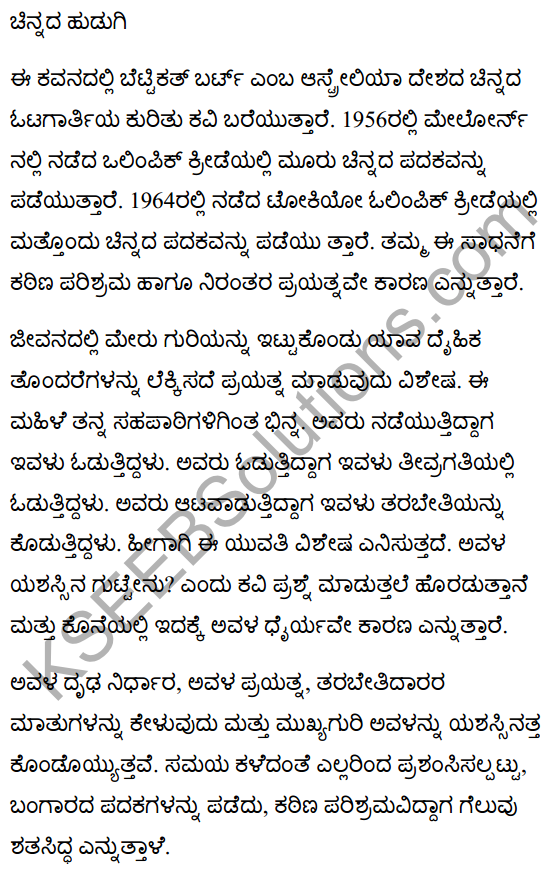By understanding the academic needs we have prepared the Karnataka State Board English Class 9 Solutions Chapter Wise. Our aim is to help the students by providing the question and answers chapter wise and help them to gain a good score in the exams. Before you start your preparation go through the chapters covered in this academic. So go through them and Download KSEEB Solutions for Class 9 English Supplementary Chapter 2 Earthquake Question and Answers Pdf for free.
Karnataka State Board Class 9 English Supplementary Chapter 2 Earthquake
The topics covered in Karnataka Secondary Education Examination Board Class 9 Solutions for English Chapter 2 Earthquake. The KSEEB Solutions Class 9 English Solutions Chapter 2 Earthquake Question and Answers are prepared according to the latest edition.The Chapterwise page will help the students to revise the syllabus during the exams.
Earthquake Questions and Answers, Summary, Notes
Comprehension:
Question 1.
How long did the earthquake last? What was the effect?
Answer:
The earthquake did not last for long. It was for less than five minutes. But its effect was devastating. Its epicenter was in a valley near Garhwal. Out of the six hundred and seventy villages, six hundred and two villages were destroyed. It brought the centuries-old mountains crashing, reduced the villages to rubble and snuffed out hundreds of lives. The landslides which were in dozens led to roadblocks with huge boulders thrown across the motorable tracks and roads.
Question 2.
Describe the boy’s family.
Answer:
The boy’s family had already been struck by tragedy before the earthquake. The boy’s father had died after an illness fourteen months before the earthquake. The boy lived with his mother who took care of the family, his grandmother, brother, Nilu, aged ten and a sister, Bhuli aged two. They lived in a two-storeyed stone house built by his great-grandfather.
![]()
Question 3.
How did the army help the people?
Answer:
The army blasted the rocks and cleared the way for army rescue teams and others like Brij who were away from their village and wanted to get back to see what had happened to their dear ones. The soldiers began to clear the debris and set up a makeshift camp. The soldiers handed over the bodies to the surviving relatives. They did all they could help the poor.
Question 4.
Did Brij return to Panipat? Why?
Answer:
It was by sheer chance that Brij was away from Molthi when the earth quaked. He had been to Pauri to buy his school books and had stayed back at his uncle’s place for the night. After the earthquake, he returned to Molthi. He had the dismay of performing the last rites of all his family members, except for his two-year-old sister Bhuli who was not found by the rescue team.
Everybody concluded that she was eaten up by wild animals. But when Brij insisted on looking for her among the debris of his house, an army officer with two of his men resumed the rescue work though there was little chance of the child being alive after hundred and sixteen hours.
But, miraculously, Bhuli was alive. However, Brij never got the chance to thank the army officer. This weighed on his conscience. When he returned to Panipat, he worked in a roadside dhaba outside Panipat. He saved money to open a teashop at Garhwal and to serve tea free of cost, to tired travellers. In every tired traveller, he saw the face of the army officer. This was Brij’s way of thanking the army officer who had helped him.
Question 5.
How could Brij start his own tea-shop? Where was it?
Answer:
Brij could start his own tea-shop because of his hard work and determination to serve tired travellers free of cost. Brij worked in a roadside dhaba outside Panipat and had saved most of his earning. He quit the job and returned to Garhwal and with a little help, he started his shop there to serve tired travellers.
Earthquake Additional Questions and Answers
Question 1.
How did Brij welcome the stranger to his shop?
Answer:
As soon as Brij spotted the stranger, he welcomed him. He asked him if he was a visitor to the valley of flowers or a pilgrim to Badrinath. He took him to his shop and made a fire for the visitor to warm himself. Then, he prepared tea. There was a bench in the tea-shop. Brij welcomed his visitor to sit on the bench. Though it looked rickety, it would take his weight. His tea was strong, sweet and flavoured with cardamom. Brij offered this tea to the stranger.
The warmth chased away the pinched blue look from his face. He talked to the stranger very sweetly, enquiring about his journey and suggesting ways and means of getting proper transport. He made his tea shop a convenient and congenial place for the traveller to stop a while. He provided a cozy fire in the biting cold and hot tea to warm him up so that he was pleased to be there.
![]()
Question 2.
What did Brij tell about his background to the traveller?
Answer:
Brij told the traveller that his village – the village of his ancestors was called Molthi; it did not exist anymore. Years ago, the village had been totally destroyed by an earthquake. In the month of October, one night, the earth moved. Though tremors were common in those hilly regions, the one they experienced that night was devastating. Though the Himalayas look solid, deep down they are unstable. People there are accustomed to tremors.
He lived in the small village of Molthi with his young brother, younger sister, his mother and their grandmother. On that particular day Brij was not in the village. He had been to Pauri to buy his school books. So, he escaped. But his mother, grandmother and brother Nilu died, while his younger sister, Bhuli was found alive under the debris. It was a traumatic experience for him. But miraculously, his sister was found alive. After that, they had gone to live with his uncle.
Question 3.
How was Brij instrumental in finding his sister?
Answer:
When Brij came to his village with his uncle, everything was destroyed. Along with his home, he had lost his whole family. That evening, he was called to perform the last rites of his family. Brij was totally dazed. When they went near the site where the funeral was to take place, Brij could not find the body of his sister, Bhuli.
Though he was told that she had died either in the quake or the wild animals might have devoured her, he would not accept it. Without waiting for anyone, he went to the place where his house once stood and started searching among the debris. An Army Officer tried to tell him that it was no use as the soldiers had done a thorough search.
However, Brij would not give up. Seeing him, the Army Officer was moved. He brought a few soldiers to search the debris. The three soldiers, who came with spades and crowbars, laboured doggedly for two hours even after dark. At last they found a small hollow where the wall had caved in and Bhuli was lying in the hollow. She was alive. Brij’s efforts had been successful in saving his younger sister, Bhuli.
![]()
Question 4.
What were the thoughts of Brij about the Army Officer who helped him 7 OR How did Brij show his thankfulness to the Army Officer?
Answer:
Brij could never forget the Army Officer who had helped to save his sister, Bhuli. The next day, when he went to thank him, he was not there. Brij did not even know his name. After this, Brij and his sister had gone to live with their uncle. It weighed on Brij that he had not thanked the Army Officer. He hoped that someday he would meet him.
With this hope he would search for the officer’s face in every crowd. Whenever he saw an Army Officer, he hoped that it was him. When he started working in the dhaba, he saw somebody who bore a close resemblance to the Army Officer. Brij offered him a hot cup of tea, after seeing that he was very tired. As he served the man, Brij felt very light and a sense of joy.
Brij did not charge him and this happened almost every day. There was someone or the other who resembled the Army Officer. Brij would serve them hot tea and he would feel a sense of great satisfaction. He never charged them.
Earthquake Summary in English
‘Earthquake’ is the story of a little boy called Brij whose attempts at finding his little sister buried under the debris after a devastating earthquake for a hundred and sixteen hours turns out to be a miraculous success. The story begins with references to Brij offering tea to strangers in his roadside tea shop in Garhwal.
The boy speaks cheerfully to people waiting for the bus and introduces himself as a seventeen-year-old who had earlier worked in a roadside, dhaba outside Panipat. In the course of his conversation, he also lets the strangers know that Molthi, the village he had belonged to, was ruined in an earthquake four years ago.
It was by sheer chance that Brij was away from Molthi when the earth quaked. He had been to Pauri to buy his school books and had stayed back at his uncle’s place for the night. The earthquake did not last for long. It was for less than five minutes. But its effect was devastating.
Its epicentre was in a valley near Garhwal. Out of the six hundred and seventy villages, six hundred and two villages were destroyed. It brought the centuries old mountains crashing, reduced the villages to rubble and snuffed out hundreds of lives. The landslides, which were in dozens, led to road blocks with huge boulders thrown across the motorable tracks and roads.
After the earthquake, Brij returned to Molthi. He had the dismay of performing the last rites of all his family members, except for his two year old sister Bhuli who was not found by the rescue operators. Everybody concluded that she was eaten up by wild animals.
But when Brij insisted on looking for her among the debris of his house, an army officer with two of his men resumed the rescue work though there was little chance of the child being alive after hundred and sixteen hours. But miraculously Bhuli was alive.
However, Brij never got the chance to thank the army officer. This weighed on his conscience. When he returned to Panipat, he worked in a roadside dhaba outside Panipat. He saved money to open a teashop at Garhwal and to serve tea to tired travellers. In every tired traveller, he saw the face of the army officer. This was Brij’s way of thanking the army officer who had helped him.
Glossary:
rickety: shaky, weak-jointed, fragile, insecure
dhaba: road-side hotel
accustomed: habituated
devastation: lay waste
rubble: fragments of brick or stone
debris(n): strewn fragments, wreckage
babbling: talk half-articulately, repeat
grimy: soot, dirt
engulfed: swallowed
We hope the information prevailed in this article is helpful for all the students of Class 9. The Karnataka State Board Solutions for Class 9 English Chapter 2 Earthquake Question and Answers pdf enhance your skills and score good marks in the exams. Stay tuned to get the latest information about the KSEEB Solutions Class 9 English Solutions.
